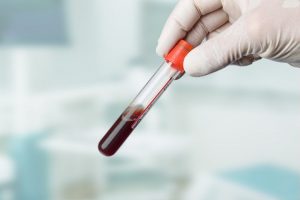
In women who suffer repeated miscarriages, specific antibodies directed against the mother’s own body are detected in about 20% of cases. A research team led by the University of Kobe has now found a treatment method that drastically increases these women’s chances of carrying a pregnancy to term without complications.
Causes of Recurrent Pregnancy Loss
Miscarriage is a devastating experience for any woman. Numerous factors can increase the risk of pregnancy loss. These include older age, uterine problems, a history of miscarriage, and genetic defects. Poor lifestyle choices, such as drug and alcohol use, can also increase the risk of miscarriage. Research studies even suggest that exposure to certain phthalates – substances commonly used in food packaging, personal care products and other everyday items – may be linked to miscarriage.
Recurrent pregnancy loss occurs in women who have lost two or more pregnancies for no apparent reason. Kobe University obstetrician TANIMURA Kenji and his team have already found that 20% of these women have a specific antibody in their blood that is directed against their own body. Tanimura explains: “There is no known treatment for this particular condition, but the antibodies have a similar target to those involved in another condition that has an established treatment.” So he wanted to test whether this treatment would also work in cases with the newly discovered antibody.
Treatment With Low-Dose Aspirin or Heparin is Very Effective in Preventing Miscarriage or Complications

Tanimura enlisted the help of obstetricians from five hospitals in Japan and analyzed the blood of women suffering from recurrent miscarriage who had given their consent over a two-year period for the antibodies. If any of these women became pregnant during that time frame, their doctors offered treatment options that included medications effective against the chemically similar condition, specifically low-dose aspirin or a drug called “heparin.” The research team then observed how many of the women who included these medications in their treatment had live births or pregnancy complications, and compared this to the pregnancy outcomes in women who did not take either medication.
The researchers from Kobe University have now published their findings in the journal Frontiers in Immunology. They report that women who received the treatment were much more likely to have live births (87% had live births) than women who did not receive treatment (of whom only 50% had live births). In addition, the treatment reduced the likelihood of complications from live births from 50% to 6%. “The sample size was relatively small (39 women received the treatment and 8 did not), but the results nevertheless clearly show that treatment with low-dose aspirin or heparin is highly effective in preventing miscarriage or complications, even in women who have these newly discovered self-targeting antibodies,” summarizes Tanimura.
Many women who tested positive for the newly discovered self-targeting antibodies also tested positive for the previously known antibodies. However, the team led by Kobe University found that women who had only the newly discovered antibodies and were treated were even more likely to deliver a live baby (93%), and that none of them experienced pregnancy complications. Looking ahead, Tanimura says, “The newly discovered self-targeting antibody has been shown to also play a role in infertility and repeated implantation failure, and is a risk factor for arterial thrombosis in women with systemic rheumatic diseases.


